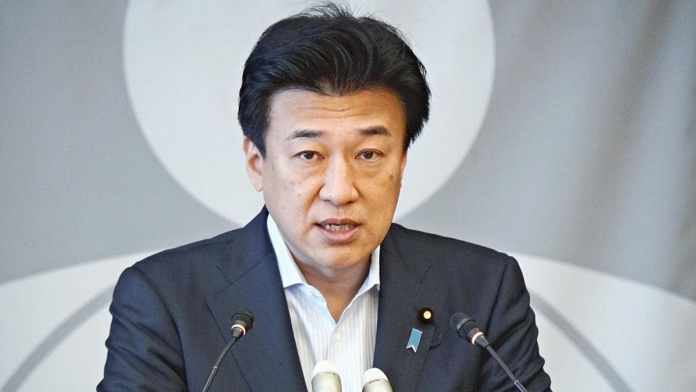Japan has signalled that it may introduce new sanctions on Russia, marking a possible shift in its approach. Japanese Defence Minister Minoru Kihara stated that Japan’s next steps will depend on the progress of peace efforts and the country’s national interests. His comments were reported by Russia’s TASS news agency.
Japan has so far taken a cautious approach in its response to the war in Ukraine, balancing between international cooperation and its own economic stability. However, rising global pressure and ongoing conflict appear to be pushing Japan to review its policies.
Kihara said that the Japanese government would make decisions after careful consideration of peace and security efforts. He stressed that Japan’s national interests remain a top priority in any future action that may be taken against Russia.
Japan has already joined earlier rounds of sanctions imposed by Western countries, but these mainly targeted Russian financial institutions, technology exports, and individuals linked to the government.
Working with global allies in Niagara
Kihara’s comments came as the Group of Seven (G7) foreign ministers gathered this week in Niagara, Canada. Japan is working closely with its G7 partners — the United States, the United Kingdom, France, Germany, Italy, and Canada — as they discuss global security issues and sanctions policy.
The G7 nations have been united in their stance against Russia since the invasion of Ukraine began in 2022. Japan’s active participation in these talks highlights its continued commitment to supporting peace and maintaining strong ties with allies.
During the meeting, ministers discussed tightening sanctions, preventing attempts to bypass restrictions, and supporting Ukraine’s reconstruction. Japan’s involvement in these discussions underlines its growing role in shaping global actions related to the conflict.
Kihara also mentioned that Japan is monitoring reports about a possible United Kingdom ban on insurance services for Russian liquefied natural gas (LNG) shipments. Such a move could affect global energy trade, and Japan is watching closely to assess any impact on its own energy imports. He did not offer further details about Japan’s position on the issue.
Sanctions under siege — Chinese-owned LNG ship allegedly caught in covert Russian gas transfer
Japan’s energy ties under scrutiny
Japan’s energy relationship with Russia remains one of the most sensitive parts of its foreign policy. The country relies heavily on imported fuel due to limited domestic energy sources. Russian LNG has been an important part of Japan’s energy supply, especially after the Fukushima nuclear disaster led to a reduction in nuclear power use.
However, the United States has previously said it expects Japan to end purchases of Russian energy. Washington argues that reducing such imports would help make Western sanctions more effective and limit Russia’s ability to fund its military activities.
While Japan has supported sanctions against Russian banks and individuals, it has been careful about energy measures to avoid damaging its economy. Stricter actions could raise energy costs for industries and households, especially during colder months.
Officials in Japan have said they are exploring ways to diversify energy imports and secure new supply routes. They continue to stress that all actions will be taken while keeping Japan’s energy security and economic needs in mind.
Bulgaria’s bold move — state seizes Lukoil refinery to dodge U.S. sanctions on Russia.
Global attention and ongoing discussions
Japan’s indication of possible new sanctions has drawn attention from around the world. If Japan imposes stricter restrictions, it could strengthen the unity among G7 nations and increase economic pressure on Russia.
Inside Japan, opinions remain divided. Some believe that standing firmly with G7 partners will reinforce Japan’s global position and commitment to international peace. Others worry that tougher sanctions could lead to higher energy costs and affect trade relations.
Despite these concerns, Kihara said that Japan remains dedicated to peace and will continue coordinating with its allies. For now, discussions among G7 members are ongoing, and Japan’s careful but firm tone shows its readiness to take further action if necessary.


